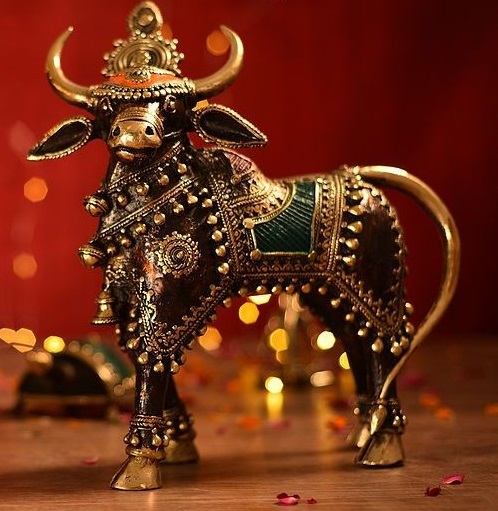SIGN UP FOR NEWSLETTER
Be the First to Know. Sign up to newsletter today

Dhokra art/Dokra art is a traditional technique of making metal artefacts. Tribal dancers,muscians, animals & lamps are popular themes in this craft.It is characterised by thin statues with pointed features. The imagery is rustic & tribal and that is very appealing. There is an emphasis on jewellery & head dress worn by both by men & women. This tribal art form dates back 5,000 years. Dhokra art traces its roots to Mohenjo daro,which was one of the largest cities in the Indus Valley Civilisation. Practised by Dhokra Damar tribes& Malhar tribes, the traditional metal smiths of West Bengal & Jharkand, this art form has withstood the test of time.
The state of West Bengal boasts of five clusters of Dhokra in Hazaribagh, Khunti, Singhbhum East, Ramgarh and Dumka districts. Bundu area is also home to some artisans producing this craft.
Artisans practising Dhokra art are also present in the states of Madhya Pradesh, Bihar and Odisha.
Available at Delhi:- Dilli haat, Gangotri
Available at Kolkata:- Biswa Bangla, Dakshinapan Shopping Complex
Artisans create beautiful metal figurines from bronze and copper alloys using a ‘lost wax casting’ method. A single piece goes through a number of processes and hence takes up to a month or two to get finished.
Here’s how the first step goes. Craftsmen first create a core (a bit smaller than the desired artefact) using clay, which is coated with wax once it has dried up in the sunlight. They ensure that all the intricacies related to design are carved onto this clay layer. Later, they add a lot more layers of clay to solidify the mould. Subsequently, they heat up the layers to let the wax layer melt. The lost wax procesc ,cire perdue is also referred to as Dhokra.
Once the wax has melted , the molten metal is poured into the cavity via multiple channels. The idea is to let the molten metal take the shape of the clay mould. After the hot liquid metal cools down and solidifies, the clay mould is broken off.
Finally, patina is applied to the metal object to accentuate the surface by creating colour. A final coat of wax ensures the patina is preserved for future use.
Taking inspiration from nature, artisans make use of different motifs such as human figurines, animal figures such as elephants, turtles and various gods and goddesses as well.
Be the First to Know. Sign up to newsletter today
213 views